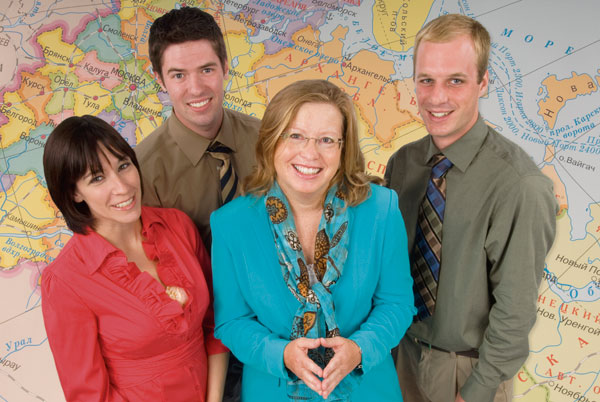Funding Student Research in Foreign Lands
|
Launched in 1997, the International Research Opportunities Program was the first of its kind at a U.S. university. Photo: Professor Cathy Frierson surrounded (from left) by students Sarah Gormady, Andrew McKernan, and Andrew Langsner. |
“It was a life-changing experience,” says Becka Keyes ’12, a nursing student who traveled to Uganda last summer to train health care workers in newborn resuscitation. In a country where infant mortality is high, Keyes visited six health care centers, four of which did not have electricity or running water. She donated bag-valve masks and other equipment that she demonstrated during trainings.
Later, she returned to each center and found that staff had retained much of what she’d taught. “They told me all these amazing stories. For example, during the month I was gone two or three babies were saved using this equipment.”
In addition to its support for projects at UNH and other U.S. research sites, the Hamel Center for Undergraduate Research offers special grants that allow students like Keyes to pursue projects anywhere in the world. The center’s International Research Opportunities Program (IROP), open to all majors, enables undergraduates to go abroad to conduct research and experience a new culture.
IROP grants, which averaged $6,580 last year, generally cover all expenses associated with a research project, including airfare and room and board for nine weeks. In its first fifteen years, the program has supported 133 students conducting research in 45 countries. (Hamel also offers another international program, SURF Abroad, which requires a shorter time commitment from students and offers a fixed stipend of $3,500, plus up to $600 for research expenses.)

















































